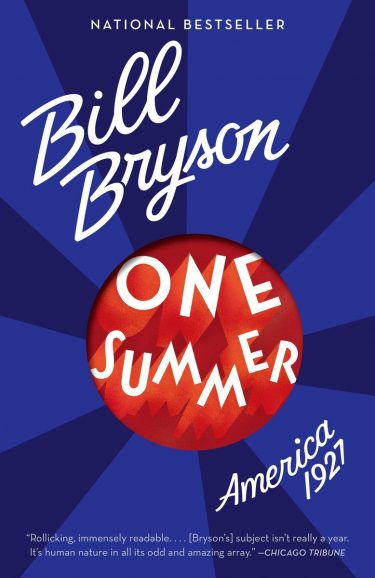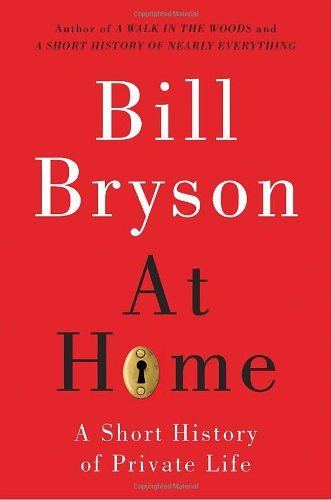 Most historians agree that America became the wold’s superpower in the early 1900s, either after the building the Panama Canal or certainly for their help in winning World War I.
Most historians agree that America became the wold’s superpower in the early 1900s, either after the building the Panama Canal or certainly for their help in winning World War I.
Author Bill Bryson, however, convincingly argues that the county truly congealed that status in the summer of 1927, when Charles Lindberg became a global superstar after becoming the first person to fly across the Atlantic; “talking pictures” began exporting American thoughts, attitudes, and culture en masse; installment plans made modern consumerism possible; television was invented, and Babe Ruth became the first athletic superstar. Amazingly, a lot more happened that summer, too, which you’ll need to read to find out for yourself.
With one or two exceptions later in the book—where Bryson sorta goes off on a tangent about seemingly unconnected things that happened that summer (such as what book publishers did that summer)—I found the history to be fascinating and often gripping. Either way, “It was one hell of a summer,” Bryson writes.
Here’s my favorite passage: “It is a little hard to imagine now, but Americans in the 1920s had grown up in a world in which most of the most important things happened in Europe. Now suddenly America was dominant in nearly every field—in popular culture, finance and banking, military might, invention and technology. The center of gravity for the planet was moving to the other side of the world, and Charles Lindbergh’s flight somehow became the culminating expression of that.”
 Because he wrote this masterpiece, I consider Bill Bryson one of the greatest non-fiction writers of our time. And while his similar At Home: A Short History of Private Life is brimming with domestic insights, it’s not as powerful or focused as the former. Three stars out of five. I’d only recommend it to die-hard home owners. My favorite passages:
Because he wrote this masterpiece, I consider Bill Bryson one of the greatest non-fiction writers of our time. And while his similar At Home: A Short History of Private Life is brimming with domestic insights, it’s not as powerful or focused as the former. Three stars out of five. I’d only recommend it to die-hard home owners. My favorite passages:
- That’s really what history mostly is: masses of people doing ordinary things… eating, sleeping, having sex, or endeavoring to be amused.
- So sedentism meant poorer diets, more illness, lots of toothache and gum disease, and earlier deaths. What is truly extraordinary is that these are all still factors in our lives today.
- The dining table was a plain board called by that name. It was hung on the wall when not in use, and was perched on the diners’ knees when food was served. Over time, the word board came to signify not just the dining surface but the meal itself, which is where the board comes from in room and board.
- It has been estimated that 60 percent of all the crops grown in the world today originated in the Americas. These foods weren’t just incorporated into foreign cuisines. They effectively became the foreign cuisines. Imagine Italian food without tomatoes, Greek food without eggplant, Thai and Indonesian foods without peanut sauce, curries without chilies, hamburgers without French fries or ketchup, African food without cassava. There was scarcely a dinner table in the world in any land east or west that wasn’t drastically improved by American foods.
- Had Thomas Jefferson and George Washington merely been plantation owners who built interesting houses, that would have been accomplishment enough, but in fact of course between them they also instituted a political revolution, conducted a long war, created and tirelessly served a new nation, and spent years away from home. Despite these distractions, and without proper training or materials, they managed to build two of the most satisfying houses ever built.
Continue reading…
 Most historians agree that America became the wold’s superpower in the early 1900s, either after the building the Panama Canal or certainly for their help in winning World War I.
Most historians agree that America became the wold’s superpower in the early 1900s, either after the building the Panama Canal or certainly for their help in winning World War I.
 Because he wrote
Because he wrote